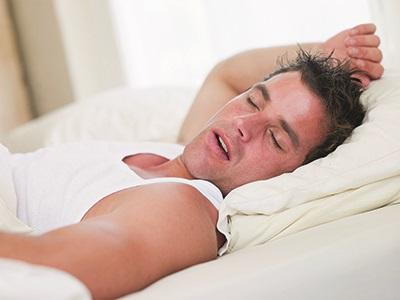Sleep apnea is a condition in which your breathing is restricted or paused for a period of time while you sleep.
Pauses in breathing can occur up to 30 times an hour, and may last for only a few seconds or up to several  minutes. Breathing will typically restart again with a loud choking or snoring sound.
minutes. Breathing will typically restart again with a loud choking or snoring sound.
The inability to breathe properly results in poor quality of sleep. When your breathing becomes restricted, it pulls you out of deep sleep and into a lighter stage of sleep. Your sleep then becomes less restful, and you’re likely to feel extremely tired during the day. Sleep apnea is one of the most common causes of severe daytime sleepiness.
Types of Sleep Apnea
Obstructive sleep apnea, a condition in which the airway becomes physically blocked, is the most common type of sleep apnea. Over 12 million Americans suffer from it, including men, women, and children of varying ages and health conditions. However, there are certain factors that increase your risk:
- Male
- Overweight
- Middle-aged or older
- Of African-American, Hispanic, or Pacific Islander heritage
- Have swollen tonsils or throat tissues
- Have a deviated septum in the nose
Central sleep apnea is a condition in which the brain does not send the correct breathing signals to your body. This condition can occur in anyone, from older adults to very young babies. Factors that may increase your risk for central sleep apnea include:
- Congestive heart failure
- Neurological disorders
- Kidney failure
- Hypothyroid disease
- Damage to the brainstem from stroke, encephalitis, or trauma
Complications of Sleep Apnea
Untreated sleep apnea can lead to an increased risk of:
- High blood pressure
- Stroke
- Heart attack
- Obesity
- Diabetes
- Arrhythmias
- Heart failure
- Auto and work-related accidents
Treating Sleep Apnea
Sleep apnea is a chronic condition that requires ongoing treatment and management. Lifestyle changes, specialized mouthpieces, breathing machines, and surgery are treatment options that help many people successfully manage their sleep apnea.
New Canaan Sleep Apnea Treatment
If you suspect that you or someone you care about may be suffering from sleep apnea, don't hesitate to get help. The sooner the condition is recognized and treated, the faster your health and quality of life will improve.
For diagnosis and treatment of sleep apnea in New Canaan, schedule an appointment with Andrew J. Parker, M.D.Dr. Parker is a board-certified otolaryngologist (ear, nose, and throat doctor). Request your appointment now or call 203-866-8121 to get on the path to better sleep and a healthier life.